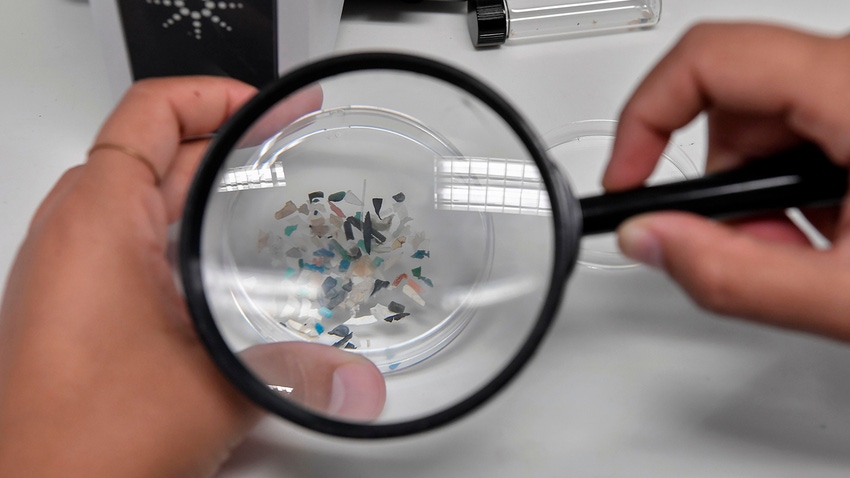Plastic Pellet Spill in Spain Galvanizes EU Parliament
European Union (EU) lawmakers vow to broaden scope and strengthen proposed law on microplastics pollution currently being negotiated.
January 12, 2024

Outrage over millions of plastic pellets washing up on the northwest shore of Spain earlier this week is spilling over into the European Parliament. Media outlets are reporting that some European Union (EU) lawmakers have vowed to strengthen a law on microplastics pollution that the parliament started negotiating on Oct. 16, 2023.
The proposed law originally targeted reducing the amount of plastic pellets that end up in the environment through punitive and preventive measures. Approximately 176,000 metric tons of microplastics end up in the environment each year, according to the European Chemicals Agency. The law that was being negotiated prior to the disaster in Spain only targeted pellets and sought a 74% reduction in related pollution, Virginijus Sinkevicius, EU environment commissioner, told Reuters in the Oct. 18, 2023, article. Now, the EU Parliament’s lead negotiator on the law has proposed expanding its scope.
Joao Albuquerque wants to expand requirements to explicitly prevent spills originating from the shipping sector and reduce the threshold at which companies are held responsible, according to Reuters.
The pellets, or nurdles, washing up on Spain’s northern shore reportedly came from a cargo spill that occurred in mid-December.
The European Commission initially proposed that companies transporting more than 1,000 metric tons of plastic pellets be required to undergo monitoring. The parliament is considering lowering that threshold to 250 metric tons.
Some officials are pushing back. Aurel Ciobanu-Dordea, who heads a circular economy unit at the European Commission's environment directorate, warned parliamentarians of the potential impact of additional red tape on small economic operators, reports EuroNews.green. “We should be mindful that verification systems, while indispensable, bring a certain administrative burden [that] is not fair to place on [small and medium size businesses] and on micro-enterprises because they produce a higher output,” said Ciobanu-Dordea.
There is little time for reflection on this or other nuances of the proposed law, however. As Reuters notes, “the Parliament is racing to agree its negotiating position, to give talks with EU countries to finish the law a chance of concluding before EU elections in June.”
About the Author(s)
You May Also Like




